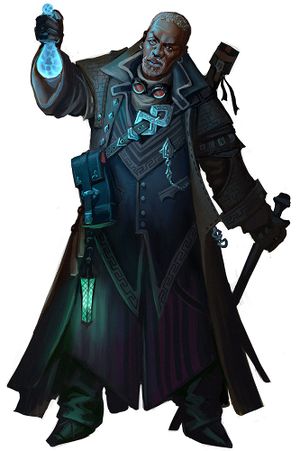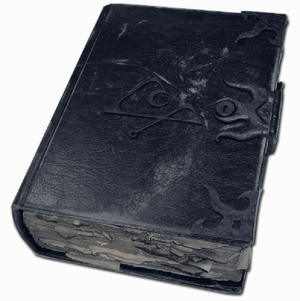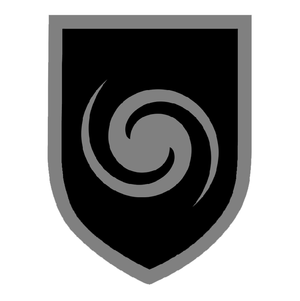Organizations of the Hidden
Reading an Organization Entry
| Global | The organization has offices in multiple nations or areas. "Global" here is a relative term, and does not imply centralized control. | |
| Localized | The organization is localized. See entry for details. Many Alexandrian-based groups have this feature! | |
| NPC | Only for NPCs. |
Organizations of the Hidden
| Common: Rogues, Inquisitors, Rangers, Fighters Locations: Alexandria | |
| An underworld cult of Taaran and Illothan influence, who contest for control of Alexandria from the shadows. They possess ties to various mercantile interests, smuggling, drug trafficking, and so on. | |
| When the Guild split from the greater Guild and its ties in Tashraan in Veyshan, the Guild of the Sly was one faction, and the Syndicate another. The Syndicate kept with the teachings of Taara and Illotha and has a cultlike structure and following.
The Syndicate itself was responsible for this split--seizing power from Veyshan, but also providing room, perhaps unintentionally, for the formation of the local Guild of the Sly. The Syndicate operates in smuggling, contraband, drug trafficking, and worse. It possesses ties to certain powerful Alexandrian Merchant Guilds, though some of these are being tested by the Sunset. This is especially true of Merchant groups who are tired or more wary of the Syndicate's ways. The Syndicate is in opposition to the Sly, and the Sunset over control and influence within various areas of the city. Due to its nature, the Syndicate is an NPC only group.
| |
| RPP-Related Skills: N/A |
| Common: Rogues, Inquisitors, Rangers, Fighters Locations: Alexandria | |
| An underworld group with hints of Alexandrian-based heroism, but whose morals would be questionable by most. They stand in opposition to the Syndicate. | |
| The Guild of the Sly was part of a group of a larger guild that was formerly composed of Taara and Illotha cultists, among others, behind the scenes. This group had been led by a mysterious individual known as The Smiling Man. Each chapter of the former Guild of the Sly was unique in and of itself but still loyal to the head guild located in Tashraan in Veyshan. This changed in Alexandria with the toppling of previous guild heads and the establishing of a new order known as The Guild.
With this change, the local Guild of the Sly declared their independence and gained a greater diversity of views than they had previously. The current Alexandrian Guild of the Sly has a streak of homegrown heroism that wasn't there before, though they're still composed of rogues, thieves, murderers, and so on. The arrival of the mysterious Ebon Syndicate was in part to blame for the original split. The Syndicate's own motives are mysterious as is their leadership and their ultimate goals. They wasted no time in involving themselves in Alexandria's often dirty and convoluted underworld of smuggling, contrabands, drug trafficking and more. Today, the Alexandrian Guild of the Sly operates as a loose organization of arson specialists, general agents, thugs, rumormongers, and so on. While generally for hire, like the rest of the Alexandrian Underworld, they're also engaged in turf wars with the Syndicate and other groups. Their activities make them a focused target of the powerful merchant groups and guilds, and have encouraged such guilds to build closer ties with the Syndicate as well as the recently established Sunset. The Sly is unofficially cheered by the creation of the Sunset, as it challenges the previously tighter relationship between Syndicate and some Merchant Guilds. Then again, it's another competitor. | |
| RPP-Related Skills: Acrobatics, Disable Device, Stealth, Disguise, Knowledge/Local, Craft/Trapmaking, Craft/Locksmithing |
| Common: Daeusite, Paladin, Inquisitor, Cleric, Bard Locations: Alexandria (A10) | |
| A Daeusite group focused on uncovering and eradicating demonic cults across Ea. | |
| The Iron Book is a low-key organization, devoted to research, smiting, and the thorough elimination of demonic cults from the earth. They eradicate them by force, indirect action, and by crowbar. Although they operate underneath the Temple of Daeus, they employ a variety of faiths and people from varying walks of life. Due to the materials they are exposed to, members are asked to follow a general code to protect themselves from corruption. These tenets are things like protecting the innocent, and although you may learn how demons are summoned, it doesn't mean you should. Without these tenets, many temples would not allow them to operate. For the purposes of sanity, demons refers to both demons and devils.
According to their history, the name of this group comes from the acts of an early scholar, who sealed a Book of Hell by encasing it in molten iron. Given demonkind's weakness to the hardy metal, this one act is rumored to have prevented a demon lord's return to Ea's surface, though the lord's name has been lost to history. The success of the scholar's endeavor inspired the Book's creation. In reality, they drew together many separate groups, who had been working towards similar goals, and united them. Composed of a mixture of the faithful, its original purpose was research, with an aim towards demon-eradication from Ea. As the organization developed, however, it found its true calling in the unearthing and destruction of occult organizations crafted by these beings. These cults are often an evil outsider's foothold to power on the Material Plane, and serve as an access point to souls, power, and the expansion of evil's warfare. Today, that is the group's primary focus.
The Book serves many functions within the Temples. First, it provides a means to eradicate demonkind's mortal power bases. Secondly, it provides a place for nontraditional students: paladins who still hold to the faith's tenets but seek a different means of combat, inquisitors with a more specific demonic focus, and even arcane faithful. Demonic cults are a messy business and so the Iron Book's membership is diverse in talents. Combating demonic cults is both a creative and physically dangerous process. Members may be involved in research and infiltration, as well as physical eradication or exorcisms. Paladins who follow this organization are typically students of the Ruse of War, and all members are encouraged to study planar interactions. Inquisitors and monks are not infrequent, and wizard members are often scholars of abjuration and wards. Arcanists who serve are asked to be members of the faithful. The Book delves into dangerous areas and power is seductive; what else led to the fall of Taara's Shadow Children? Actual practice of the arts they study then, is anathema. Without this missive, most temples would not allow them to operate. The order also possesses a number of tenets, to guard against corruption.
Not much is written about the practices of the Book. What is known is below, and written in more general, sweeping statements. Note that specific details may vary from location to location.
Given the nature of its enemy, the Iron Book operates by strict tenets, which are adapted and extrapolated from a singular source, a work published shortly after the Daemonic Wars. The work existed under several names, and has since been copied to international archives.* The Book's version of this work states:
The above rules apply to warfare against the enemy and provide guidelines for behavior. They are intended to serve as protection for the agent against the enemy's corruption. These tenets are taken on top of those associated with the Daeusite and other temples.
Leadership and Areas of Influence The organization itself reports generally to the Daeusite temple structure, and its official head is a Navosian monk. Her best friend and assistant is a sorcerer marked by demonic taint and student of the Temples. Her friend's condition actually spurred the monk's interest in the subject, with the goal of one day curing these sorts of taints. This sorcerer herself is in actuality a friend of Madame Gelfure, who eyes the friendship with amusement and some worry. The Iron Book is a secretive organization, devoted to research and the thorough elimination of demonic cults from the earth--eradicating them by force, indirect action, and by crowbar. There are few formal gatherings, if any, and knowledge of it is more rumor than fact (it's not something brought up in casual conversation); it is unheard of outside of the Temples. Most of its "organizing" actually takes place via oversight--through the Sunguards. This was developed early on as a safeguard, which means the order is essentially powerless. Too, they would hide their resources from the dangerous creatures they hunt. The Iron Book tends to operate in temple basements that have been warded for its purpose. One is located beneath the Temple of Daeus in Alexandria. The Temple of Eluna tends not to host them, as the number of dangerous artifacts would prove too tempting for the forces the Book studies.
| |
| RPP-Related Skills: Knowledge/The Planes, Knowledge/Military Theory, Knowledge/Religion, Knowledge/Arcana, Knowledge/Local, Sense Motive, Bluff |
| Common: Reosian, Elunan, Cleric, Artificer, Inquisitor, Ranger Locations: Alexandria (A14) | |
| A Reosian group focused on addressing the dangers coming from Morduzum. | |
| History
Not long ago, noted Khazadi historical scholar and priest of Reos, Hurdrizh Silverarm, began to speak to certain members of the order in Dun Mordren about his belief that--thanks to events coming out of Alexandria--an entrance to Morduzum might be close to being unearthed. This accelerated when the Hall of Artificers rose on its legs for no apparent reason, but Silverarm, possessed of a number of enemies, was actively suppressed by these rivals in the priesthood. It was not until very recently, when elements of the Reosian priesthood in Alexandria working with adventurers and members of the Enclave of Engineers to investigate the truth behind the sudden animation of the Hall, that Silverarm was vindicated. Tunnels into the dark were revealed, and artifacts from Morduzum discovered just under the service. To this end, Silverarm moved quickly to speak with senior elements of the Reosian priesthood, and found himself amid a hotbed of political rivalries. The Hall of Artificers scrambled to maintain control of the situation, while the City Watch and Council demanded reporting. As if this were not enough, Dun Morden itself became something of an issue, with old interests and factions beginning to sniff around. Alexandros, fiercely independent, naturally resented this influence. A band of adventurers meanwhile, began to organize a means to monitor creatures coming from the underdepths. Working in conjunction with the priesthood of the temple within the Hall of Artifice, Enginebreaker Fazahd Masterbuilder had already taken it upon himself to form the core of a full-on Inquisition to investigate and begin to monitor the underground passages and those who sought to explore them. Without official sanction from the priesthood, funding, and greater support, this Inquisition would have been doomed to fail, but Masterbuilder was savvy enough to fall in under the council's leadership. In turn, Silverarm found himself inspired by their bravery, and disgusted by his own countrymen's greed. He promptly resigned his Dun Morden citizenship and swore to Alexandria. Since then, Silverarm has become the council lead of the recently formed Morduzumite Inquisition, with the addition of fellow councilmembers from the Hall, the city itself, and a rotating council seat allowed to Dun Morden. The Dun Morden one was deliberately chosen by Silverarm, allowing factions among the khazad influence--but as a means for force them to fight amongst themselves. He knew his countrymen. Silverarm himself serves as both a leader and diplomat, though some doubt his dedication to Alexandros, given his former citizenship. One could say he is simply glad others are listening, and to have such enthusiasm for the protection of Alexandria's citizens. Along with local Reosoans, those of the Serriel, Althea and Daeus faiths might be interested in the agency.
The Morduzumite Inquisition is directed by a council of four, including Silvarm, himself. One belongs politically to Dun Morden, which is a rotating councilship. The others represent the City Watch and Council, as well as the local Hall of Artificers. This body will coordinate the large-scale operations of the Inquistion as it grows. The council receives regular inquiries by the Reosian Temple on its progress, as well as the Artificer's Hall, itself, as elements struggle to fall into place. They have a long way to go. The Inquisition is focused on, and based in, Alexandria. However, certain fringe groups in Dun Morden may cast an unwelcome interest. The group has unnamed allies as well, in the Mythwood--as the llyranesi have long stood guard over a similar rift. The Adventurer's Guild looks to be a longtime ally, as a means to regularly 'cleanse' the Hall's bowels.
| |
| RPP-Related Skills: Craft/Artifice, Knowledge/History, Knowledge/Religion, Knowledge/Dungeoneering, Knowledge/Geography, Spellcraft, Sense Motive |
| Common: Rogues, Inquisitors, Rangers, Fighters Locations: Alexandria (A05) | |
| An underworld mafia with a trace of Alexandrian heroism. Begun by the overlooked arvek nar and now joined by Dragoneri refugees who were tired of the glass ceiling and the Syndicate's control, they seek to bring order to the mercantile, and other, underworlds in Alexandria. | |
| Arvek after the Sendor War faced something of a glass ceiling in Alexandria. They found trade blocked from them, both from outright racism and influence from the Syndicate. True to their nature, the arvek and began to make their own way.
Since then, they've been joined by some Dragoneri refugees, among a few others who have also felt overlooked. Others join because they are tired of the Syndicate's hold on mercantile groups, which the Sunset challenges. The Sunset is a small, yet successful order of black market merchants, enforcers, and smugglers. The Sunset takes an additional meaning to the racial moniker, and have built a network of business just beneath Alexandria's surface. They are closely tied to merchant and shipping industries and now challenge the Syndicate, who once dominated these areas. Though they're new, they're also more organized, which offers them both a strong and competitive advantage against other groups in the Underworld. However, they're also small, and some see them as racially motivated. To local merchants and the populace, they're a mixed blessing. While the orderliness of the Sunset has calmed random street and gang violence, it comes at a price and has encouraged these competitive groups to pick up their game before they lose territory, forever. Members of the Sunset often see themselves as business entrepreneurs or even peacekeepers between criminals. This does not mean they are clean, however. Only that they see themselves that way. Like all Underworld groups, the Sunset competes with the Guild of the Sly as well as the Ebon Syndicate, and any others, over resources, territory, information, and so on. | |
| RPP-Related Skills: Diplomacy, Intimidate, Stealth, Craft/locksmithing, Profession/bookkeeper, Profession/merchant, Spellcraft |
| Common: Daeusite, Elunan Locations: Alexandria | |
| An order which guards against the Void's growing influence. | |
| It took the combined powers of Daeus, Animus, and Maugrim to renew the Great Seal upon the Void. When Taara struck down Animus, certain souls began to suspect that such an effort, should the Void ever threaten the world again, might not be repeatable and that the threat of the Void must therefore become their primary focus.
With Animus' death (by proxy, it is said, as such direct actions were forbidden by Divine Law), the threat of the Void became a greater reality. Taking inspiration from the cavalier movement across Ea, warriors and scholars both combined to create the first Order of the Seal. The order at first focused on preserving a number of artifacts from Taara's grasp, once Animus fell, and to seek out and preserive any knowledge or artifacts that might be of assistant in preserving Gaea in the face of the Void. This is the last time the order would be whole--it quickly splintered into several groups. The various orders of the seal have since scattered themselves among civilisation, and its original name has come to be associated with various orders of knights who are charged with the protection of important or dangerous objects or sacred areas. These orders maintain a focus on anything to do with the Void, be it cultists or the actions of dark powers and deities who's actions may weaken the Seal. They safeguard faiths, relics, ancient sites, and traditions who are allies in this struggle. It is their hope that the spirit of men being strong will help keep the Seal strong. While the knights of the seal recall the Void, they know that it may not be guarded by a single force, but must instead by many. | |
| RPP-Related Skills: Sense Motive, Knowledge/history, Knowledge/religion, Linguistics, Profession/Astrologer, Ride |



